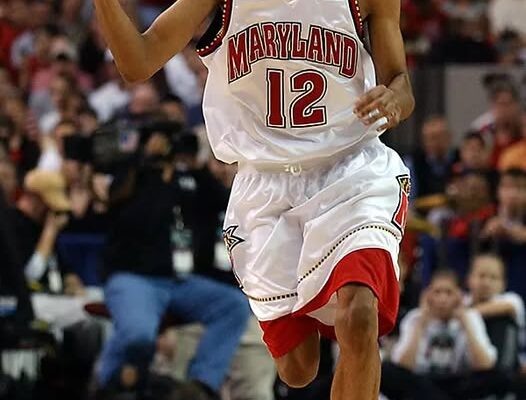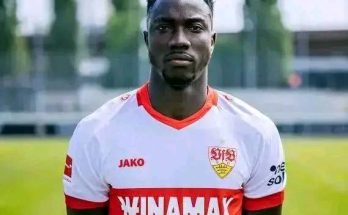The Boston Celtics have made a significant addition to their front office by hiring Drew Nicholas as the Executive Director of Player Personnel. The move comes at a pivotal time for the franchise, fresh off a championship season and in the midst of retooling its scouting and player evaluation infrastructure. Nicholas, a former University of Maryland standout and international basketball star, brings with him a wealth of experience from both the playing court and the executive suite. With a résumé that includes high-level contributions across several NBA organizations and a celebrated playing career overseas, his hiring reflects the Celtics’ intention to remain elite not just on the floor but in the boardroom.
Drew Nicholas’s basketball journey is a case study in global immersion and continuous evolution. He first gained national attention as a sharp-shooting guard for the Maryland Terrapins, where he played a crucial role in the team’s 2002 NCAA Championship. That title-winning squad was known for its toughness, cohesion, and defensive grit, and Nicholas was instrumental with his perimeter scoring and poise in big moments. Perhaps his most iconic college moment came a year later when he drilled a dramatic game-winning three-pointer in the NCAA Tournament, sealing a victory that remains one of the most memorable shots in Maryland basketball history. Despite his collegiate success, Nicholas went undrafted in the 2003 NBA Draft, a setback that would steer him toward a different but no less successful path—professional basketball overseas.
Rather than chasing limited NBA minutes, Nicholas built an exceptional international career. He became one of the most dangerous scorers in the EuroLeague, earning a reputation as a clutch shooter and cerebral guard. His time with European powerhouses such as Panathinaikos in Greece and Anadolu Efes in Turkey added championship pedigree and exposed him to a style of basketball focused on strategy, teamwork, and precision. He twice won the EuroLeague championship with Panathinaikos and was the league’s top scorer in 2006. These experiences not only enriched his understanding of the game, they helped him develop a global lens—something few American basketball minds possess so thoroughly. Nicholas retired from playing in 2012, leaving behind a legacy defined not by NBA stardom, but by sustained excellence in the world’s second-most competitive basketball ecosystem.
After hanging up his jersey, Nicholas seamlessly transitioned into basketball operations. His first roles came in the scouting departments of several NBA teams, where he gradually built a reputation as a keen evaluator of talent. He began his executive career with the Minnesota Timberwolves before joining the Philadelphia 76ers in a similar capacity. Over time, he sharpened his understanding of the draft process, player development, and international scouting. These roles demanded more than just basketball insight; they required administrative skill, negotiation, communication, and a strong feel for how to assess long-term potential—a vastly different discipline from simply playing the game.
Nicholas’s work ethic and sharp eye eventually landed him in Boston for the 2021–22 season, where he served as a scout. Though his time with the Celtics was brief, it offered him a firsthand look at the culture and processes of a storied franchise on the rise. Boston was already assembling a championship-caliber roster, and Nicholas’s input contributed to the careful layering of talent that would help the team reach the NBA Finals that year and win the title two seasons later. After Boston, he was hired as Director of Scouting for the Denver Nuggets, a role he held for two years. His tenure in Denver coincided with the franchise’s first NBA championship, as the Nuggets built a deep, balanced team around superstar Nikola Jokić. While the Nuggets’ on-court success often spotlighted their stars, the organization’s player development and draft success were equally crucial—and Nicholas was a vital part of that engine.
In the 2024–25 season, Nicholas joined the Brooklyn Nets as a scout, further broadening his exposure to differing team philosophies and operational styles. Though Brooklyn was in a different phase—rebuilding rather than contending—Nicholas’s ability to work within varied organizational structures proved valuable. He scouted both collegiate and international talent, identifying long-term fits rather than short-term solutions. His experience across these three franchises—Boston, Denver, and Brooklyn—gave him a unique range of insight into how different teams construct their rosters, evaluate character, and balance potential with production.
Now back in Boston in a senior leadership role, Nicholas enters an organization that is both familiar and freshly ambitious. His appointment fills the void left by longtime Celtics executive Austin Ainge, who departed earlier this summer to lead basketball operations for the Utah Jazz. Ainge had been a core figure in Boston’s front office for over a decade, so replacing him required more than just filling a title—it meant ensuring continuity of vision and execution. In Nicholas, the Celtics believe they have found someone who combines modern scouting sensibilities with a deep appreciation for the Celtics’ long-standing commitment to culture, toughness, and player development.
As Executive Director of Player Personnel, Nicholas will oversee a wide range of responsibilities. His primary duties will likely involve overseeing the Celtics’ scouting efforts at the collegiate, professional, and international levels. He will also help evaluate trade and free agent targets, working closely with President of Basketball Operations Brad Stevens and the rest of Boston’s front-office team. Given his international experience, Nicholas may take a special interest in expanding the Celtics’ global scouting network, identifying potential talent that might otherwise fly under the radar. In an NBA landscape that increasingly rewards positional versatility and global reach, this could be a significant competitive edge.
Beyond the logistics of scouting and player acquisition, Nicholas also brings invaluable perspective as someone who has lived the player’s journey—both its triumphs and its struggles. He knows what it’s like to sit on the fringe of the NBA. He knows how hard it is to earn a role in a championship culture. That empathy and realism make him particularly suited to evaluating the “intangibles” of prospects and veterans alike. Can this player handle adversity? Will he commit to a role? Does he elevate teammates or just himself? These questions don’t always have measurable answers, but they’re critical to constructing a roster that wins in June. Nicholas’s track record suggests he knows how to find those answers.
His hire also reinforces the Celtics’ long-term approach to roster building. While Boston boasts two superstar pillars in Jayson Tatum and Jaylen Brown, championship teams are defined by the players who fill the gaps—role players, two-way contributors, developmental projects who blossom into postseason difference-makers. The Celtics have excelled in this area in recent years, finding value in players like Derrick White, Al Horford, and Payton Pritchard. Nicholas’s ability to identify talent that complements existing stars—rather than competing with them for usage—will be crucial in extending Boston’s title window.
The timing of Nicholas’s appointment could hardly be more strategic. The Celtics, like all elite teams, face ongoing pressure to refresh their supporting cast without sacrificing continuity or chemistry. With a deep roster already in place, the margin for error in future personnel decisions becomes thinner. Draft picks must contribute. Free-agent signings must fit. Two-way players must be developed efficiently. Nicholas steps into this role not with a blank slate, but with the expectation that every decision could carry playoff implications. It’s a high-wire act that demands experience, discipline, and vision—qualities he has demonstrated across multiple successful stops.
Moreover, his presence adds leadership to a front office that has undergone notable changes in recent months. The departure of Remy Cofield, another trusted voice in Boston’s scouting operation, to take a collegiate athletic director role in Arkansas, further emphasized the need for a strong replacement who could command respect and get results. Nicholas’s arrival not only plugs those holes but elevates the department, offering fresh insight and proven results.
It is also worth considering what Nicholas’s hiring signals about the evolving nature of NBA front offices. Increasingly, teams are prioritizing diverse experience—former players, international voices, and analytics-minded thinkers all working together. Nicholas is a blend of all three. He played the game at its highest levels, understands international basketball deeply, and has embraced the operational and data-driven side of the modern NBA. In an era where front offices need to be both agile and visionary, his hybrid background could be the prototype for future executives.
As the Celtics prepare for another deep playoff run, the addition of Drew Nicholas won’t make daily headlines like a blockbuster trade or a max contract extension. But internally, it could be one of the most important decisions of the offseason. Championships are built not only with star talent, but through the meticulous work of those who evaluate, develop, and acquire the pieces that make greatness sustainable. In hiring Nicholas, the Celtics have invested in that process. And if his track record is any indication, it’s an investment that could pay dividends for years to come.



